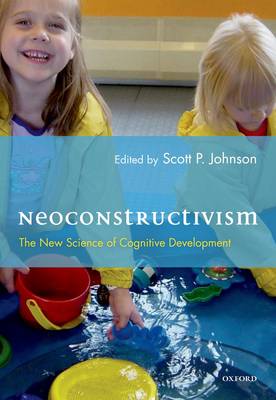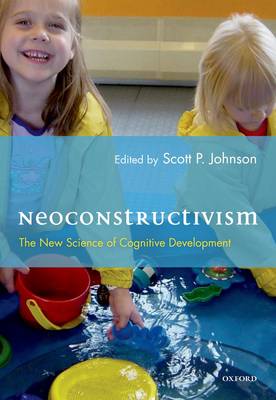
- Retrait gratuit dans votre magasin Club
- 7.000.000 titres dans notre catalogue
- Payer en toute sécurité
- Toujours un magasin près de chez vous
- Retrait gratuit dans votre magasin Club
- 7.000.0000 titres dans notre catalogue
- Payer en toute sécurité
- Toujours un magasin près de chez vous
167,95 €
+ 335 points
Description
Arguments over the developmental origins of human knowledge are ancient, founded in the writings of Plato, Aristotle, Descartes, Hume, and Kant. They have also persisted long enough to become a core area of inquiry in cognitive and developmental science. Empirical contributions to these debates, however, appeared only in the last century, when Jean Piaget offered the first viable theory of knowledge acquisition that centered on the great themes discussed by Kant: object, space, time, and causality. The essence of Piaget's theory is constructivism: The building of concepts from simpler perceptual and cognitive precursors, in particular from experience gained through manual behaviors and observation. The constructivist view was disputed by a generation of researchers dedicated to the idea of the "competent infant," endowed with knowledge (say, of permanent objects) that emerged prior to facile manual behaviors. Taking this possibility further, it has been proposed that many fundamental cognitive mechanisms -- reasoning, event prediction, decision-making, hypothesis testing, and deduction -- operate independently of all experience, and are, in this sense, innate. The competent-infant view has an intuitive appeal, attested to by its widespread popularity, and it enjoys a kind of parsimony: It avoids the supposed philosophical pitfall posed by having to account for novel forms of knowledge in inductive learners. But this view leaves unaddressed a vital challenge: to understand the mechanisms by which new knowledge arises. This challenge has now been met. The neoconstructivist approach is rooted in Piaget's constructivist emphasis on developmental mechanisms, yet also reflects modern advances in our understanding of learning mechanisms, cortical development, and modeling. This book brings together, for the first time, theoretical views that embrace computational models and developmental neurobiology, and emphasize the interplay of time, experience, and cortical architecture to explain emergent knowledge, with an empirical line of research identifying a set of general-purpose sensory, perceptual, and learning mechanisms that guide knowledge acquisition across different domains and through development.
Spécifications
Parties prenantes
- Auteur(s) :
- Editeur:
Contenu
- Nombre de pages :
- 384
- Langue:
- Anglais
Caractéristiques
- EAN:
- 9780195331059
- Date de parution :
- 25-11-09
- Format:
- Livre relié
- Format numérique:
- Genaaid
- Dimensions :
- 257 mm x 175 mm
- Poids :
- 1119 g

Les avis
Nous publions uniquement les avis qui respectent les conditions requises. Consultez nos conditions pour les avis.






